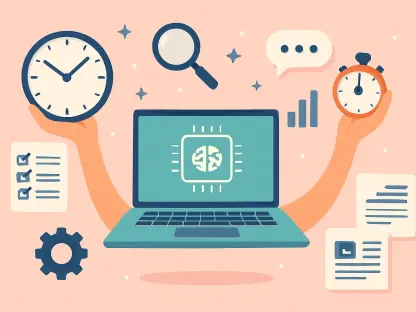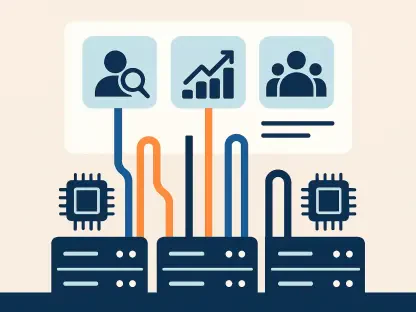Setting the Stage: A Pivotal Shift in Talent Acquisition Technology
In the fast-evolving realm of human capital management (HCM), a striking development has emerged that could redefine how organizations approach talent acquisition. SAP, a powerhouse in enterprise software, has finalized its acquisition of SmartRecruiters, a San Francisco-based innovator in recruiting technology, known for its AI-driven tools and automation capabilities. This deal, completed in the current year, marks a significant milestone in the HR tech sector, where the demand for efficient, data-driven hiring solutions has never been more pressing. With labor markets tightening and competition for skilled talent intensifying, this strategic move by SAP signals a broader shift toward integrated, intelligent systems that promise to streamline recruitment processes. This market analysis delves into the implications of the acquisition, exploring current trends, data-driven insights, and future projections for the HR tech landscape, while offering strategic perspectives for stakeholders navigating this transformative period.
Deep Dive into Market Trends and Strategic Implications
AI-Driven Innovation: Redefining Recruitment Efficiency
The HR tech market is undergoing a profound transformation, with artificial intelligence (AI) emerging as a cornerstone of modern talent acquisition strategies. SmartRecruiters’ platform, now under SAP’s umbrella, leverages AI to enhance applicant tracking, optimize recruitment analytics, and improve candidate engagement, significantly reducing time-to-hire metrics. Industry data suggests that companies adopting AI-powered recruiting tools can slash hiring cycles by up to 30%, a critical advantage in today’s competitive environment. By integrating these capabilities into the SAP SuccessFactors suite, a widely adopted HCM solution, SAP is poised to offer a seamless ecosystem for sourcing, interviewing, and onboarding talent. However, the challenge lies in ensuring these AI systems remain unbiased and adaptable to varied global hiring needs, a concern that could shape market acceptance.
Market Consolidation: A Wave of Strategic Acquisitions
Beyond technological innovation, the acquisition reflects a broader trend of consolidation within the HR tech industry. Recent years have seen major HCM providers seeking to bolster their portfolios through strategic buyouts, as niche players with specialized solutions become prime targets. SAP’s move to acquire SmartRecruiters positions it ahead of competitors who may lag in developing robust in-house recruiting tools, offering a comprehensive solution that could attract a wider customer base. Market analysis indicates that over 60% of HR leaders prefer integrated platforms over fragmented systems, highlighting the potential for SAP to capture significant market share. Nevertheless, integration risks, such as potential disruptions for existing SmartRecruiters users, could temper short-term gains if not managed effectively.
Customer-Centric Solutions: Balancing Scale and Usability
Another critical aspect shaping the market is the growing emphasis on customer experience in HR tech deployments. SmartRecruiters, serving over 4,000 organizations including industry giants like Amazon and Visa, has built a reputation for user-friendly, outcome-focused tools. While the platform remains a standalone offering for now, its eventual merger with SAP SuccessFactors aims to deliver a unified HR solution without compromising usability. Regional disparities in tech adoption, particularly in markets with stringent data privacy regulations, may pose challenges to a seamless global rollout. Market forecasts suggest that vendors prioritizing measurable results and minimal complexity during integration will likely see higher retention rates among enterprise clients over the next two years, from 2025 to 2027.
Forecasting the Future: Emerging Patterns in HR Tech
The Rise of Agentic Systems and Predictive Hiring
Looking ahead, the HR tech market is expected to pivot toward agentic systems—platforms that autonomously drive outcomes rather than merely process data. The integration of SmartRecruiters’ forward-thinking technology into SAP’s ecosystem could accelerate this trend, enabling predictive hiring models that anticipate workforce needs before they arise. Economic pressures, such as fluctuating labor availability, are likely to fuel demand for such proactive tools, with projections estimating a 25% increase in adoption of AI-driven recruiting platforms by 2027. Regulatory frameworks around AI ethics and data security will also play a pivotal role, potentially influencing how vendors design and deploy these solutions across diverse geographies.
Expanding Horizons: Skills-Based and Gig Economy Focus
Another emerging pattern is the shift toward skills-based hiring and gig economy integration, areas where SAP could leverage its enhanced capabilities post-acquisition. As organizations increasingly prioritize competencies over traditional credentials, HR tech platforms that offer skills mapping and flexible workforce planning are gaining traction. Market insights suggest that nearly 40% of enterprises plan to incorporate contingent workers into their talent strategies within the next three years. SAP’s strengthened position could enable it to explore these adjacent markets, potentially setting a new standard for comprehensive workforce solutions that cater to both permanent and temporary staffing needs.
Competitive Landscape: A Catalyst for Further Innovation
The competitive dynamics of the HR tech sector are also set to intensify following this acquisition. With SAP raising the bar for integrated HCM offerings, other major players may accelerate their own acquisition strategies or double down on internal development to keep pace. Smaller vendors, meanwhile, could face pressure to innovate or risk losing ground to consolidated giants. Market projections indicate that the HR tech industry could see a 15% uptick in merger and acquisition activity by 2027, driven by the need for end-to-end solutions. This evolving landscape underscores the importance of agility and foresight for vendors aiming to remain relevant in a rapidly consolidating market.
Reflecting on the Impact: Strategic Lessons from the Deal
Looking back, SAP’s acquisition of SmartRecruiters proved to be a defining moment in the HR tech arena, highlighting the critical role of AI and integration in addressing modern talent challenges. The deal underscored the market’s trajectory toward consolidation and intelligent systems, offering a glimpse into how technology could reshape workforce planning. For organizations and HR leaders, the key takeaway was the need to adapt swiftly to these advancements. Moving forward, stakeholders were encouraged to assess their tech ecosystems for alignment with emerging trends, invest in training for AI-driven tools, and monitor regulatory shifts to ensure compliance. By embracing platforms that offered scalability and user-centric design, businesses could position themselves to thrive in an increasingly digital hiring landscape, turning market shifts into opportunities for sustained growth.









